Makenna Tabino
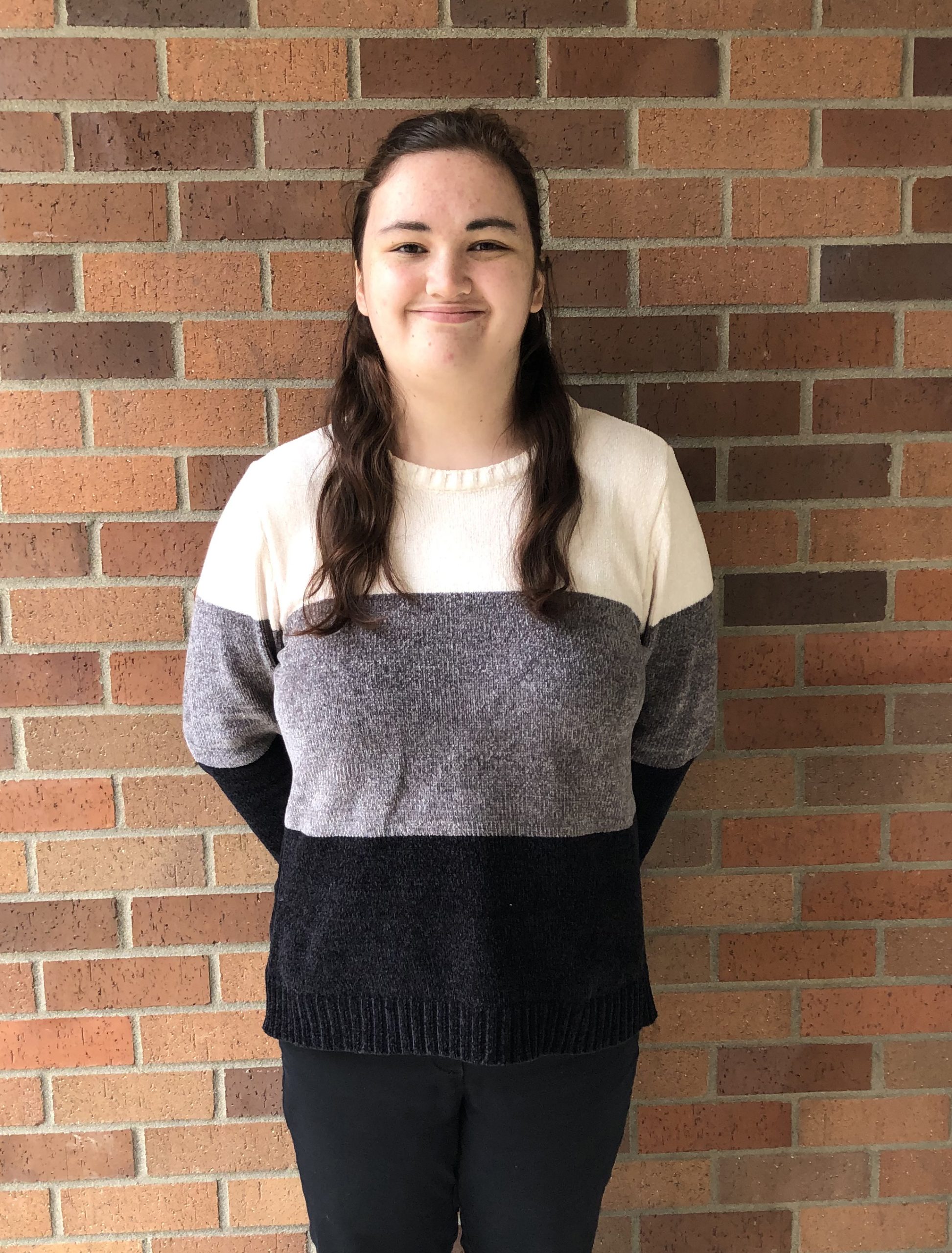
Makenna Tabino will graduate from Eastern Washington University with a B.S. in Biology (Wildlife Management Track). As a Running Start student, she spent her last two years of high school attending EWU as a full-time student. She is passionate about ecology and conservation, especially in regards to wetlands. Some of her interests include restoration ecology, wetland management, and community (multi-species) interactions.
Summer 2023, Makenna worked on a research project with her mentor, department chair Dr. Rebecca Brown, to investigate the long-term effectiveness of aquatic mowing on maintaining wetland vegetative diversity. This project was in collaboration with the nonprofit Ducks Unlimited, led by manager of conservation programs Chris Bonsignore.
2023 EWU Faculty Research Mentor: Dr. Rebecca Brown
Research Title: Determining the Long-Term Effectiveness of Seeding Post-Dam Removal in the Elwha River, WA, Through Soil Seed Bank Analysis
Abstract: Located in Olympic National Park, the Elwha River is the site of the largest dam removal project in the world. It is also the site of the second largest ecological restoration project in the history of the National Parks Service. Following dam removal, active restoration (seeding and planting) took place in terraces and valley walls, the two dominant landform types found in the former reservoir. While extensive research has been conducted surrounding the plant community in the former dam reservoirs, the soil seed bank remains an unexplored aspect of the area’s ecology. The objective of this project is to use the composition of the soil seed bank to determine the long-term effectiveness of seeding post-dam removal in the former Lake Mills reservoir. In the summer of 2023, soil seed bank samples were collected from 40 locations within the former Lake Mills. Each sample consists of eight 10-cm soil cores collected approximately 1 meter away from the perimeter of revegetation sampling plots. These samples are currently undergoing cold stratification; once the process is complete, they will be grown in the EWU greenhouse for a minimum of six months. The species richness and diversity of each sample will be recorded and compared with the observations of the 2023 revegetation survey

Another Great Summer of Research at McNair!
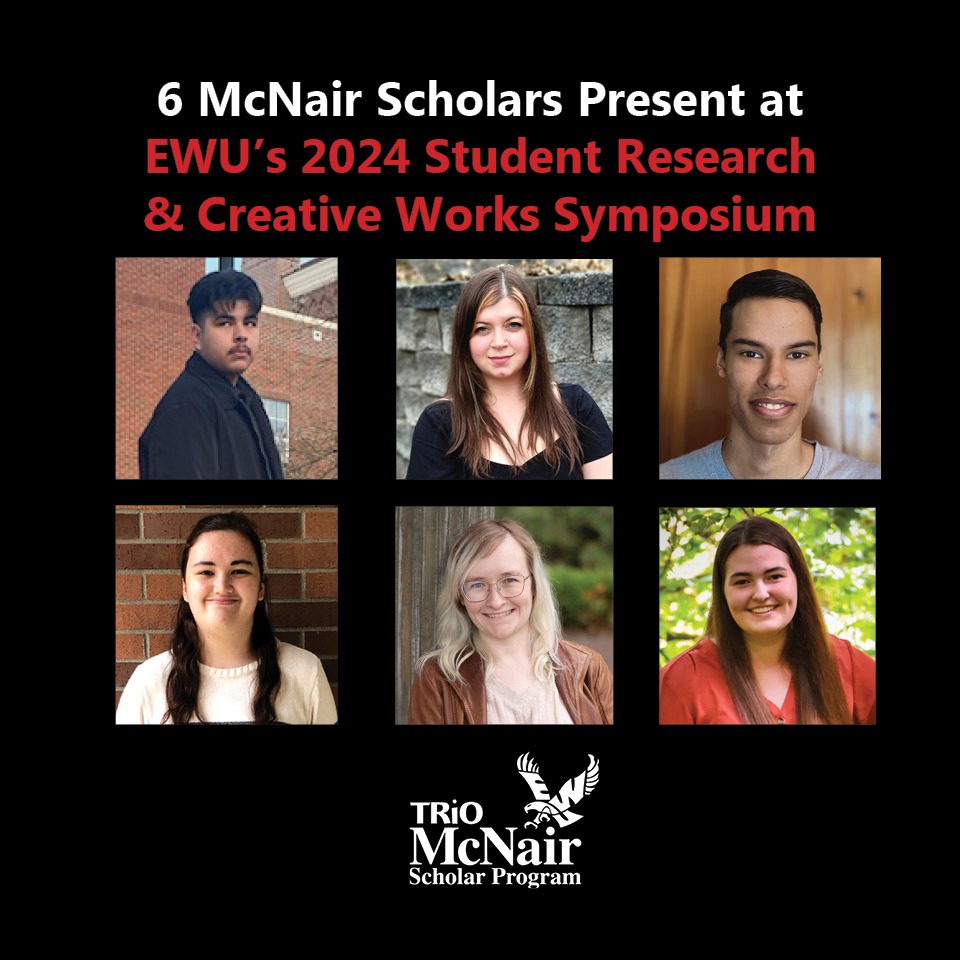
McNair Scholars Present at EWU’s 2024 Student Research & Creative Works Symposium
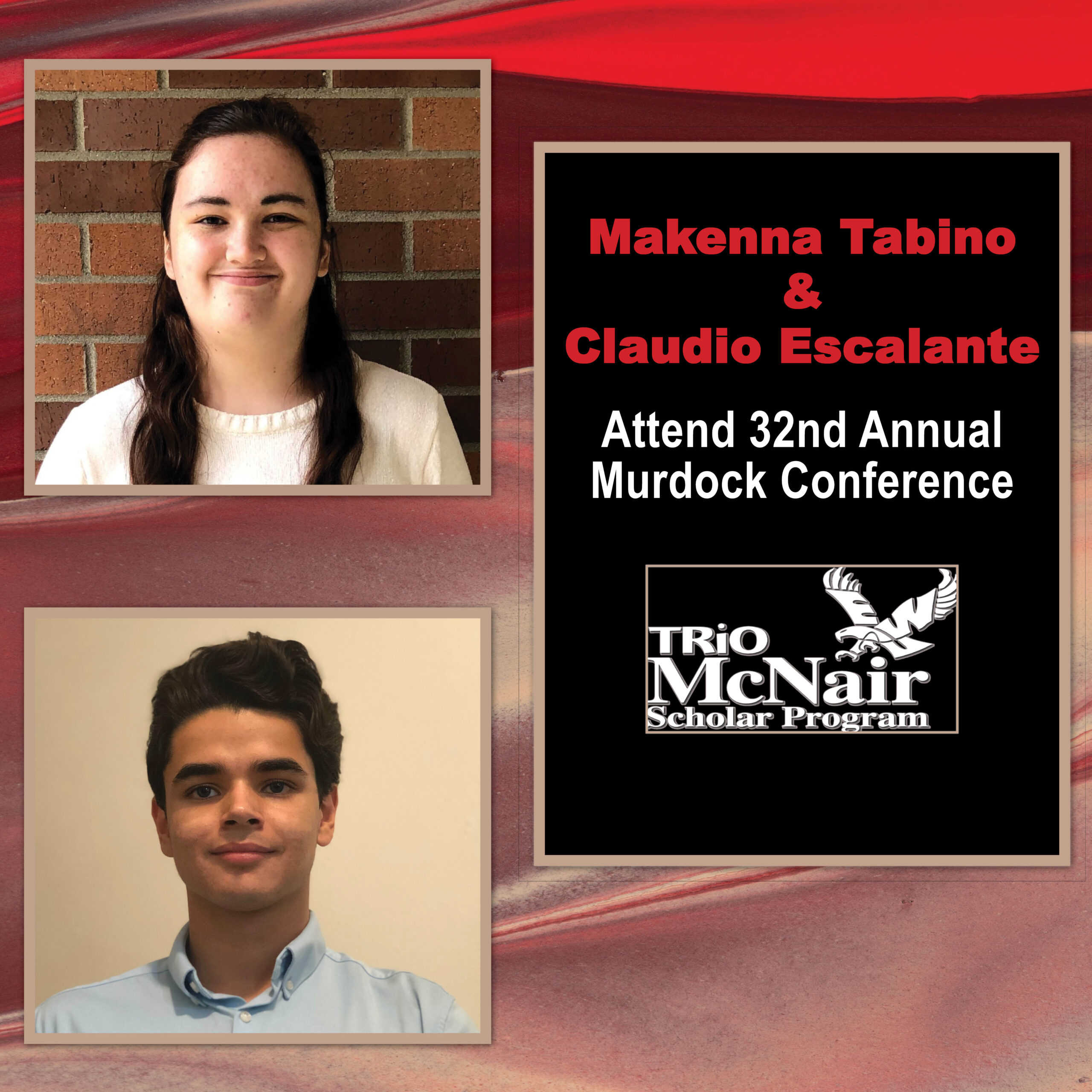
McNair Scholars Makenna Tabino & Claudio Escalante Attend the 32nd Annual Murdock Conference
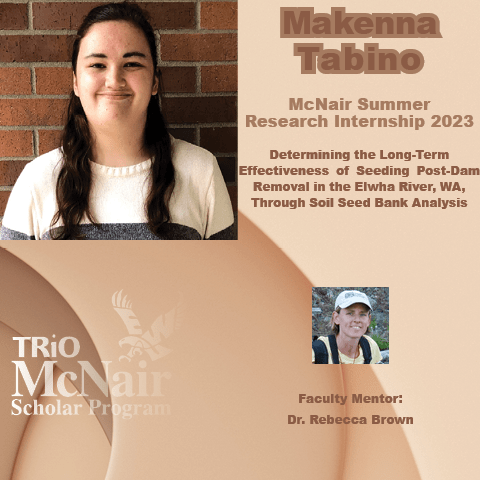
EWU McNair Scholar Makenna Tabino Completes Summer Research Internship

McNair Scholars Connect with Research Librarians
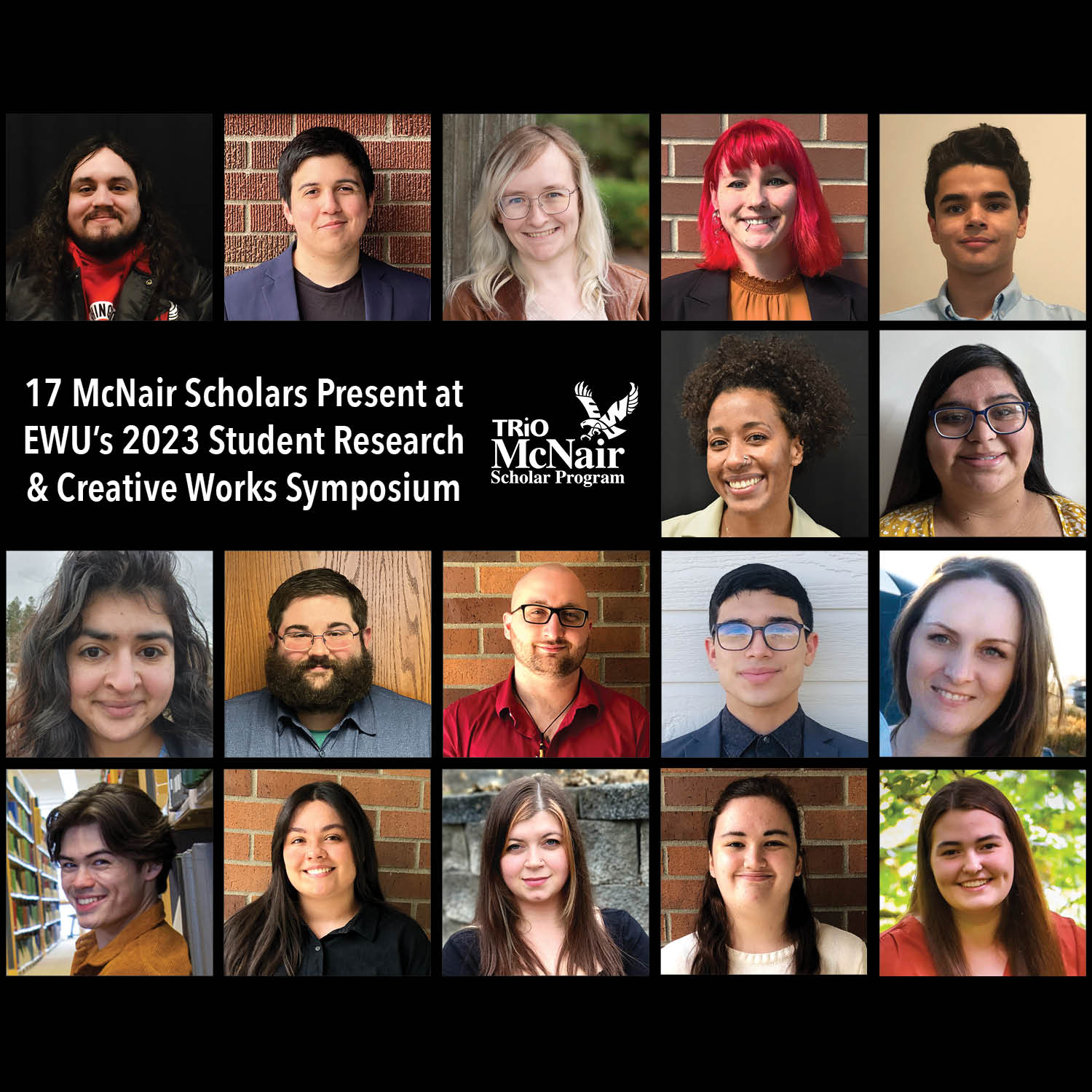
17 McNair Scholars Present at EWU’s 2023 Student Research & Creative Works Symposium


